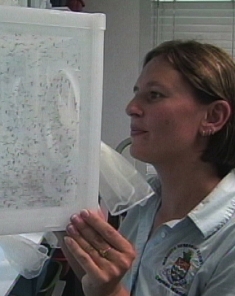Archive for December, 2010

Drug council campaigns for designated drivers
 (CNS): The National Drug council has called on people who intend to go out drinking this holiday season to appoint a designated driver and take care of them. Encouraging people not to drink and drive over the holidays, the NDC said several local restaurants and bars have agreed to provide customers complimentary soft drinks in return for being the agreed driver for their party. The council also reminded those hosting private parties to make sure there is a choice of soft drinks for those not drinking alcohol. By appointing designated drivers and taking care of them the NDC said they will in turn take care of everyone by keeping drunk drivers off the road.
(CNS): The National Drug council has called on people who intend to go out drinking this holiday season to appoint a designated driver and take care of them. Encouraging people not to drink and drive over the holidays, the NDC said several local restaurants and bars have agreed to provide customers complimentary soft drinks in return for being the agreed driver for their party. The council also reminded those hosting private parties to make sure there is a choice of soft drinks for those not drinking alcohol. By appointing designated drivers and taking care of them the NDC said they will in turn take care of everyone by keeping drunk drivers off the road.
“Designated Drivers are hugely important to keeping our roads safe during the holiday season”, said Joan West-Dacres, Executive Director of the NDC. Designated drivers only need to identify themselves to the server at participating bars and restaurants to receive free soft drinks for the evening.
“This programme would not be possible without these types of private partnerships. We are appealing to all road users to take responsibility and to always put safety first. Don’t make this holiday season one to remember for all the wrong reasons. Designate a driver, and let’s all work together to prevent further deaths and serious injuries on our roads over the festive season,” added West-Dacres.
She also called on hosts to be responsible and to ensure those who are designated drivers are looked after at office and house parties. For those parties with no designated driver, the NDC recommended booking a taxi before going out.
The NDC also reminded people who are drinking that they can still be over the limit the next morning. “Even if you feel okay to drive you may still be over the legal alcohol limit and could risk a fine or imprisonment, the NDC said in its holiday survival tips. “Remember your body gets rid of roughly one standard drink – that’s one beer, standard mixed drink, or a glass of wine — per hour.”
Farm releases only eight turtles into wild
(CNS): The Cayman Turtle farm released only eight yearling green sea turtles into the wild last month at Seven Mile Beach, despite the release being an important part of its conservation efforts. Sending the new crop on their way, however, Turtle Farm managers said most of the animals return annually to the Cayman Islands to nest and will lay an average of between 500 and 1,000 eggs per year for the next 20 years. The latest group made their way across the sands, instinctively imprinting the local landscape, before gaining the water to begin a new life, officials said. The turtles may now go as far afield as Central and South America, and even the coastal waters of Florida, going some way to assist the survival of the endangered species.
Managing Director of the Cayman Turtle Farm: Island Wildlife Encounter, Tim Adam, described the release as “a kind of culmination and a confirmation of what we do, of what we want to achieve". He said, "We are making a difference here and in the world around us, and that is something Cayman can be proud of.”
Each year the farm releases a number of young turtles during the Pirates Week Festival and members of the public enter a raffle for the opportunity to be the ones that send the turtles back to the ocean.

Ministries’ accounts no value
 (CNS):The auditor general has revealed that the overall consolidated report on core government’s accounts will be of limited value as, he says, he has had to disclaim his opinions on nearly all of the financial statements submitted by ministries and he does not expect the situation to improve for the most recent financial year. Speaking at the Public Accounts Committee (PAC) meeting on Tuesday, Alastair Swarbrick said government’s accounts up to 2007/08 are “fundamentally unreliable” because of “significant deficiencies” in the supporting documentation and information.
(CNS):The auditor general has revealed that the overall consolidated report on core government’s accounts will be of limited value as, he says, he has had to disclaim his opinions on nearly all of the financial statements submitted by ministries and he does not expect the situation to improve for the most recent financial year. Speaking at the Public Accounts Committee (PAC) meeting on Tuesday, Alastair Swarbrick said government’s accounts up to 2007/08 are “fundamentally unreliable” because of “significant deficiencies” in the supporting documentation and information.
In the first “General Report” on government accounts since the one published on the 2004/05 financial year, which is expected to be made public this week, the auditor says that he cannot give a clear view of the reliability of the financial statements up to 2009 because of the lack of information. He said that the information up to the year end of 2008 is of little value.
The country’s independent auditor also revealed that the output statements cannot be relied upon and were also of very limited value. “The systems and processes are not in place to effectively produce the information,” Swarbrick told PAC. “It is my office’s view that in their current guise they do not provide effective public accountability for the performance of ministries and portfolios.”
He said the reports don’t clearly indicate what a ministry or portfolio has actually achieved during the various financial years and in most cases he has had to disclaim or qualify his opinion.
Swarbrick revealed, however, that the statutory authorities and government companies had, with some notable exceptions, made better progress than core government. He said that as well as catching up with backlog, the financial statements were in many cases more reliable and the numbers and information were reasonable. He revealed that, based on commitments by officials, the authorities’ backlogs should all be up to date and have submitted their 09/10 accounts to his office by February of 2011.
The auditor general noted that, while government entities were working on catching up with their accounts, it was important to begin to improve the quality of those financial statements for them to be accountable to the people. Despite the efforts to catch up, Swarbrick warned that there were still going to be issues concerning the last financial year, which ended on 30 June.
As various chief officers and chief financial officers came to discus their current situation with PAC on Tuesday, it was apparent that there was still considerable misunderstanding on the part of government’s accountants about what was expected of them when it came to submissions. A number of entities stated that they had submitted their accounts to the auditor for 09/10 by the deadline; however, Swarbrick noted that what they had submitted fell short of the requirements under the Public Management and Finance Law.
Chair of the committee, Ezzard Miller, said he could not understand why, when the people involved were qualified CPAs, they did not seem to know what was expected under that law. Swarbrick said that once the backlog was addressed it was clear there was a pressing need for an education process about what constitutes a submission.

Beat stress and just breathe
 (NPR): There are plenty of ways to relieve stress — exercise, a long soak in a hot bath, or even a massage. But believe it or not, something you’re doing right now, probably without even thinking about it, is a proven stress reliever: breathing. As it turns out, deep breathing is not only relaxing, it’s been scientifically proven to affect the heart, the brain, digestion, the immune system — and maybe even the expression of genes. Mladen Golubic, a physician in the Cleveland Clinic’s Center for Integrative Medicine, says that breathing can have a profound impact on our physiology and our health.
(NPR): There are plenty of ways to relieve stress — exercise, a long soak in a hot bath, or even a massage. But believe it or not, something you’re doing right now, probably without even thinking about it, is a proven stress reliever: breathing. As it turns out, deep breathing is not only relaxing, it’s been scientifically proven to affect the heart, the brain, digestion, the immune system — and maybe even the expression of genes. Mladen Golubic, a physician in the Cleveland Clinic’s Center for Integrative Medicine, says that breathing can have a profound impact on our physiology and our health.
"You can influence asthma; you can influence chronic obstructive pulmonary disease; you can influence heart failure," Golubic says. "There are studies that show that people who practice breathing exercises and have those conditions — they benefit."

Civil servants face jail threat
 (CNS): A number of the government’s top employees have been warned that they could face a six month prison sentence and a $10,000 fine if they do not comply with the Public Management and Finance Law and submit all of the necessary financial information to the Auditor General’s Office. Ezzard Miller, chair of the Public Accounts Committee, told chief officers, chief financial officers and senior staff from various public authorities on Tuesday that he has asked the attorney general about taking legal action against those who have committed an offence by not meeting the 31 August deadline to submit their accounts in accordance with the law.
(CNS): A number of the government’s top employees have been warned that they could face a six month prison sentence and a $10,000 fine if they do not comply with the Public Management and Finance Law and submit all of the necessary financial information to the Auditor General’s Office. Ezzard Miller, chair of the Public Accounts Committee, told chief officers, chief financial officers and senior staff from various public authorities on Tuesday that he has asked the attorney general about taking legal action against those who have committed an offence by not meeting the 31 August deadline to submit their accounts in accordance with the law.
Although more than half of the government entities obligated to submit accounts under the PMFL have managed to address a considerable part of the backlog and submit their 09/10 accounts to the auditor general more or less on time, more than a dozen public entities have failed to do so and were warned by Miller at the committee meeting that there was no more room for excuses.
Following his controversial move last week to use the law to sanction a reporter and a local newspaper, Miller warned a number of civil servants that they too were liable to prosecution as a result of falling foul of the law.
The PAC chair first raised the issue of possible prosecution with the chief financial officer and chief officer in the premier’s ministry, when he said that the Ministry of Finance Tourism and Development should be setting an example.
 Miller acknowledged the staffing issues that the CO said were causing the problem, but said he did not believe, as the ministry responsible for finance, that there were not people there that could address the issue. “My job is to get these accounts up to date and for too long we have been satisfied with saying it can’t be done,” he added as he read the relevant section of the law and the jail time penalty. “I can no longer sympathize with you.”
Miller acknowledged the staffing issues that the CO said were causing the problem, but said he did not believe, as the ministry responsible for finance, that there were not people there that could address the issue. “My job is to get these accounts up to date and for too long we have been satisfied with saying it can’t be done,” he added as he read the relevant section of the law and the jail time penalty. “I can no longer sympathize with you.”
Miller also warned Cayman Airways, which is also still struggling to meet the requirements of the law, and revealed that it was not working backwards through its accounts, which were still outstanding going back to 2006. As the government’s airline has to use a private auditing firm for its commercial loans and leasing, the CAL management team said it was impossible for them to meet the deadlines set out in the PMFL.
However, Miller warned that they had an obligation to find a way. “I don’t want to see you go to jail,” Miller told Fabian Whorms, the CEO, and Paul Tibbetts, the chief financial officer. He warned that there could be no more excuses. “Trust me. You are at the end of the road,” Miller stated.
Staff from the Port Authority, UCCI, the Airports Authority and the Cayman Cultural Foundation were all told that the chair had sought advice with regards possible prosecution and implored the various authorities to get their 09/10 accounts into the AG’s office.
Listening to the various explanations, Miller told the senior staff that they had to find ways to solve their problems because when they were asked for the accounts by the PAC (as they were during the last meeting since they had not given the accounts) they had committed an offence. Imploring the staff to get the accounts done, Miller pointed out that to have just one of the entities missing would mean that the entire government accounts could not be done.
As each entity came before the PAC, it became apparent there were varying degrees of delinquency but in some cases substantial progress had been made and the PAC chair offered his congratulations to those entities that had submitted 2009/10 accounts on time or within a few days of the 31 August deadline. The Health Services Authority, which was once one of the most delinquent authorities, was after considerable effort revealed to have caught up, and the Cayman Turtle Farm was also noted as a good news story for its substantial improvement in the state of its accounts.
However, the AG issued a warning that the overall picture for government’s consolidated accounts in regard to the backlog up to the year end 2009, which is complete and due to be laid on the table of the Legislative Assembly at the next sitting, would be qualified and by and large unreliable.
See more on CNS tomorrow about the overall picture of public accounts.

PAC to grill government bean-counters
 (CNS): The Public Accounts Committee will be meeting publicly for the first time in several months this morning in order to see where the financial officers are with the country’s outstanding accounts. The auditor general’s report on the current situation has not yet been completed and laid on the table of the Legislative Assembly but Ezzard Miller, chair of the PAC, said the meeting had been called in order to update the committee. He said accountants from ministries and government companies will be called to report where they now are with the backlog of public accounts. It is six years since the Cayman Islands government produced a set of audited financial accounts that could be scrutinised by the public.
(CNS): The Public Accounts Committee will be meeting publicly for the first time in several months this morning in order to see where the financial officers are with the country’s outstanding accounts. The auditor general’s report on the current situation has not yet been completed and laid on the table of the Legislative Assembly but Ezzard Miller, chair of the PAC, said the meeting had been called in order to update the committee. He said accountants from ministries and government companies will be called to report where they now are with the backlog of public accounts. It is six years since the Cayman Islands government produced a set of audited financial accounts that could be scrutinised by the public.
The AG is expected to deliver a comprehensive report before the year end, but Miller said he was calling the meeting in order to publicly thank the financial officers that were now up to date with their accounts and to take a more serious position on those that were not. Despite the extra public money injected into the “catch-up” project of the various ministries and other public authorities, a significant number have still not got their accounts up to date.
Check back to CNS later today for a full report from the meeting
Luxury property still in demand says report
(CNS): According to a report from Global Property Guide while average housing prices in the Cayman Islands have experienced double-digit declines over the last twelve months luxury beachfront properties are still in demand. Primary factors affecting prices the report said was “a substantial decline in residents” because of a drop in foreign work permits. House prices are down 15% on average in 2010 but the report claimed that beachfront homes priced between CI$900,000 and CI$1.2 million and condo waterfront properties ranging from CI$600,000 are selling well. There was a 13.8% drop in the number of property transfers, and a 15% decline in the total value of transfers in the first half of 2010.
“With these people leaving the island there is a dramatic decrease of rental properties needed,” says Jeanette Totten, owner and broker at Cayman Luxury Property Group. “Many of town homes are sitting empty with either developers not being able to sell them or owners not being able to rent them.”
The report reveals that lending rates have remained at record low levels. In June 2010 therate was 3.25%. As a result it said the mortgage market expanded to 55% of GDP in 2009, from 48% of GDP in 2008. Domestic property loans in the first half of 2010 rose 3.0% compared to the same period last year.
The maximum loan-to-value (LTV) ratio is 70% of the property’s appraised value, with 10 to 15 year loans typical. Recently, some lenders have offered up to 30 to 40 years to Caymanians. The minimum loan amount is CI$300,000.
The report also suggested that Grand Cayman’s two major developments -the Ritz-Carlton at Dragon Bay and Camana Bay- each worth $500 million will have significant economic impact along with Dr Shetty’s Narayana Cayman University Medical Centre which is expected to bring in “millions of dollars,” the report said.

Cayman mosquito release was act of “colonialism”
 (CNS): A UK not-for-profit public interest group has criticized the British scientists that released three million genetically modified (GM) mosquitoes on Grand Cayman this year. GeneWatch said that the use of an overseas territory without public consultation for such an experiment was an act of colonialism. The organisation, which investigates how genetic technologies will impact food, health, agriculture, environment and society, said Oxitec had misleadingly claimed the mosquitoes released in Cayman were sterile and that there was no ethical oversight before using Cayman for the trials.
(CNS): A UK not-for-profit public interest group has criticized the British scientists that released three million genetically modified (GM) mosquitoes on Grand Cayman this year. GeneWatch said that the use of an overseas territory without public consultation for such an experiment was an act of colonialism. The organisation, which investigates how genetic technologies will impact food, health, agriculture, environment and society, said Oxitec had misleadingly claimed the mosquitoes released in Cayman were sterile and that there was no ethical oversight before using Cayman for the trials.
“The British scientific establishment is acting like the last bastion of colonialism, using an Overseas Territory as a private lab,” said GeneWatch UK’s Director, Dr Helen Wallace. “There is no excuse for funding trials without public consultation or ethical oversight to help out a spin-out company that is heavily in debt.”
The trials were conducted by Oxitec, in which Oxford University is an investor. The company also owes £2.25 million to a multi-millionaire venture capital investor in Boston, which it is due to pay back by 2013. Thecompany is losing £1.7 million a year and its business plan requires it to commercialise its products and charge ongoing fees for continual releases of the GM mosquitoes, which are intended to reduce the transmission of the dengue virus.
Trials of the same GM mosquitoes are expected in Malaysia soon. The biggest risk with the company’s approach is that a different, more invasive species of mosquito (the Asian Tiger mosquito) may move into the ecological niche vacated by the species it is targeting (the Yellow Fever mosquito), potentially transmitting more diseases and becoming harder to eradicate. The company has created GM Asian Tiger mosquitoes with a view to marketing these in future to tackle this expected problem.
“People in Malaysia should make their own decision about how to best tackle dengue,” said Dr Wallace, “But they need to be informed about the potential risks and why the company is so keen to push ahead. There is a real danger that this approach to reducing mosquito populations could lead to harm to public health. It is also likely to lock developing countries into continual payments for ongoing releases of two GM mosquito products.”
Oxitec’s scientists have published computer models of falling mosquito populations as a result of releasing their GM mosquitoes, but they have not included the effect of the two different species of mosquitoes and their interactions with the four forms of the dengue virus and other tropical diseases, the activist group said.
Oxitec has close links to the GM crop company Syngenta and is also developing GM versions of agricultural pests, which it intends to commercialise in future, partly to combat the growing problem of resistant pests caused by the use of pest resistant (Bt) GM maize, soybeans and cotton.
It has received significant public subsidies, including more than £2.5 million in grants from the UK government-funded Biotechnology and Biological Sciences Research Council (BBSRC), mainly for joint projects with Oxford University.

Cops call on crooks to help find robbers
 (CNS): Believing the attack on a defenceless elderly couple will outrage even the local criminal fraternity, DS Marlon Bodden of the RCIPS has called on them to help bring the robbers to justice. Releasing images yesterday of the injuries suffered by the couple, who were beaten during a home invasion, the head of the Specialist Support Operations Unit, Marlon Bodden, said the crime against these senior citizens was “atrocious, frightening and disrespectful”, especially when they offered no resistance to the masked men. Police have mounted an enquiry into this latest shocking robbery, which even against the continuous rise in violent crimes has crossed the line.
(CNS): Believing the attack on a defenceless elderly couple will outrage even the local criminal fraternity, DS Marlon Bodden of the RCIPS has called on them to help bring the robbers to justice. Releasing images yesterday of the injuries suffered by the couple, who were beaten during a home invasion, the head of the Specialist Support Operations Unit, Marlon Bodden, said the crime against these senior citizens was “atrocious, frightening and disrespectful”, especially when they offered no resistance to the masked men. Police have mounted an enquiry into this latest shocking robbery, which even against the continuous rise in violent crimes has crossed the line.
Speaking to Cayman27 yesterday, Bodden showed the picturesof the injuries the couple sustained as he called on the community to help find the two men responsible for the attack.
The couple, who are in their eighties, were beaten by the robbers in their home at the junction of Shamrock Road and Carmen Blvd at around 11:15 pm on Saturday night. The suspects are described as young males of slim to medium build.
One of the men is taller than the other and  both spoke with Caymanian accents. They were both wearing dark clothing, a mask and a baseball hat and one was armed with a gun. Although the couple were not shot they were repeatedly hit by the robbers when they were unable to give them cash.
both spoke with Caymanian accents. They were both wearing dark clothing, a mask and a baseball hat and one was armed with a gun. Although the couple were not shot they were repeatedly hit by the robbers when they were unable to give them cash.
The couple were both taken to hospital and treated for their physical injuries.
This is the third home invasion this month and the second involving elderly members of the community. On 2 December police hauled a robber from the water at Dray Quay after an 80-year-old woman found two masked robbers in her home in Magellan Quay, and on Thursday night (9 December) three masked men invaded a home in Sweet Gum Lane in West Bay.
Police are making a substantial appeal for witnesses or anyone who has information to contact Bodden Town CID at 947-2220 or Crime Stoppers on 800-8477.

View from the southeast corner
The article written by Brent Fuller and published in The Compass on Wednesday, 8th December 2010, under the headline “Closed-door FOI review set” and further subtitled “FOI Commissioner wants key role” in my view carried several inaccurate statements and was written in a style that would lead readers to believe something sinister was being done.
Let me deal with each inaccurate statement in turn.
1. In the first line of the article the author make the statement: “It appears the legal review of Cayman’s first Freedom of Information Law will not be done before the eyes of the public."
The author of this article was present in the press box when the premier moved the motion several months ago, in public, to establish this committee of the whole House with Madam Speaker as chairman, in accordance with the FOI law. The FOI law states in Section 58 (1): "This Law shall be reviewed from time to time by a committee of the Legislative Assembly appointed for that purpose," and in subsection (2): "The first such review shall be conducted not later than eighteen months after the appointed day."
The Legislative Assembly Standing Orders (2006 revision) lays down specific rules in sections 70,71,72, 73 & 74 that all select committees are expected to follow, and section 73 subsection (4) says: “The proceedings of and the evidence taken before any select committee and any documents presented thereto, and decisions of such a committee shall not be published by any Member thereof or by any other person until after the Committee has presented its report to the House."
In my view this statement is a deliberate misrepresentation of the truth and is an offence under section 18 (2) a. of the Immunities, Powers and Privileges law (IPP).
2.The author continues: “A six-member Legislative Assembly subcommittee is scheduled to begin meeting ‘in camera’ — privately — this month to review Cayman’s Freedom of Information law."
This statement is also inaccurate as it is not meeting in camera (privately). This subcommittee is bound to conduct its affairs in accordance with Standing Orders.
In my view this statement is also a deliberate misrepresentation of the truth because the truth is known to the author, and the statements is an offence under section 18 (2) a. of the Immunities, Powers and Privileges Law.
3.The editorial goes even further, when in the first paragraph it reads: “We suppose someone in the ‘secret’ subcommittee that we guess is going to be deciding the fate of Cayman’s Freedom of Information law will say something like this over the coming weeks …”
In my view this is also a deliberate misstatement of fact as no subcommittee nor select committee can make any decisions as to the fate of the FOI law. All either committee can do is make recommendations in a report that will be tabled and therefore made public. The only body that can make any changes to the existing FOI law is the Legislative Assembly, either by government presenting an amending bill of a private bill or by a non-government bill, both of which is done in public with the press present.
In my view, this is a deliberate misrepresentation of the facts that should be known to the newspaper and is an offence against the IPP law.
4.The editorial goes on to say in paragraph three: “in attempts to head off this foolishness — since we haven’t been invited to participate in any hearings of this secret body …”
This in my view is also is an offence under section 18 (2) c. as I believe it touches the conduct of members when they are accused of doing foolishness.
5.The worst statement in the editorial reads: “ It is in fact the direct opposite of what is supposed to occur under the FOI law."
The deliberate accusation that the subcommittee and the select committee is in contravention of the FOI law is untrue and the Legislative Assembly acted in full compliance of the FOI law in establishing the select committee, and the select committee acted within its remit to establish the subcommittee. In my view this is also a deliberate misrepresentation of the facts and that the truth was known to the author, and that it is an offense under section 18 (2) a of the IPP law.
Now having read the article and the editorial and being contacted by several friendly and not so friendly supporters accusing me of being a part of tampering with the FOI law in secret, I had three choices an a member of the Legislative Assembly: ignore the article and editorial and do nothing, use the privilege provided me by the IPP law to attack and castigate the author and The Compass, or use the process provided me as a member under the IPP law to have the Attorney General decide if the parties should be prosecuted before a court of law and let the Court decide if guilty and what punishment should be handed down.
Far too often in this country of late we are content in our accommodating culture to let our institutions be attacked and degraded with no response. The fact that we tolerate and often acquire to the statement that Caymanians are lazy, can’t learn, and the high level of crime that is tolerated because we stand by and ignore the perpetrators and refuse to report them to the police and other authorities. I believe it is time to act and stop ignoring the obvious.
The second choice is not part of my modus operandi as a politician, so it was not open to me. I sit in my southeast corner of the Legislative Assembly with disgust as members, institutions like the press and members of the public are attacked with immunity. I find it almost laudable that the darlings of the press and media are the four members who voted against the motion, several of whom had the most critical and uncomplimentary things to say about the paper and the author. I did not criticize or castigate either The Compass or the author of the article; I simply gave the reasons for bringing the motion and asked the Legislative Assembly to take certain actions.
I chose the third option open to me to begin to defend our institutions and re-establish certain standards. I chose to move a motion of Privilege and ask the Attorney General to prosecute the reporter and The Compass under the provisions of section 18 and 19 of the IPP law and for Madam Speaker to cancel the press privilege of the author immediately.
This is what I do whenever I believe a citizen or resident has broken any of Cayman’s Laws: I report them to the relevant authorities and asked that they be prosecuted under the relevant or appropriate law. Normally such reports and request are done through the police. This option was not open to me in the Legislative Assembly so I made the request directly to the Attorney General.
Had I not done my duty, because in my view these infractions of the law were committed by the press, I would have no moral authority to tell any constituent member not to steal, exceed the speed limit or smoke ganja, for that matter.
The process which will follows is the normal one. The Attorney General will decide if there is a case to answer and, if there is, proceed to a court of law for the court to decide if they are guilty and to hand down the appropriate sentence, as provided for in the IPP law. Neither the Legislative Assembly nor I can decide, nor can the Legislative Assembly instruct the Attorney General who to prosecute.
On a further point, there are those who say that the select committee could decide to hold its deliberations in public by suspending Standing Orders. This is not so. A select committee cannot suspend any Standing Orders; only the Legislative Assembly when sitting can suspend Standing Orders by majority vote.
Oh, by the way, if the editor wants to contribute or be a part of the review, all they have to do is make a written submission and/or request an audience with the subcommittee to discuss their issues with the law and they will be treated in accordance with Standing Orders.
I fully understand in our democracy the pen is mightier than the sword and that it was not “good politics” to bring this motion, as is evidenced by the blogs and the more recent publications in the media. However, I am not one who is easily intimidated by the media, although in my thirty years around politics in Cayman I have endured my share of threats and ridicule by the media.
In my view, this is about a principle of respect for the workings of our Legislative Assembly and the members elected to that high office. The people have chosen the fifteen members in a proper electoral process to represent them and have the trust and belief that they will do what is best for Cayman and its people and any article written with such a slant that in my view appears to erode that trust or question the motives based on inaccurate statements should be challenged within the rules using due process of law.